Spring 2022 Semester Update
Adjourned
Vickie R. Courtney Award Recipients
The Big Issues
University Senate Governance Working For U
University/Faculty Senate Recaps
Spotlight on: Edgar Arriaga
A Message from the Director
Adjourned
Vickie R. Courtney Award Recipients
The Big Issues
University Senate Governance Working For U
University/Faculty Senate Recaps
Spotlight on: Edgar Arriaga
A Message from the Director
May 26, 2020

"We are not working from home. We are sheltering in place during a crisis…and trying to work."
Since March and the transition to working from home, a lot of employees have been thinking about ways to stay connected and engaged with colleagues and adjust to the challenges that come from working at home. Jaden Hansen, associate development officer, School of Public Affairs, explained, "The three of us are working in different areas of development at the University and started the ECDP Alumni Group to help our newer colleagues stay connected and build a network with one another. We invited our colleagues to convene virtually to talk about overlaps in our work and to share resources. What we learned is that the work conversation was just the icebreaker.” (Photo by Standsome Worklifestyle on Unsplash.)
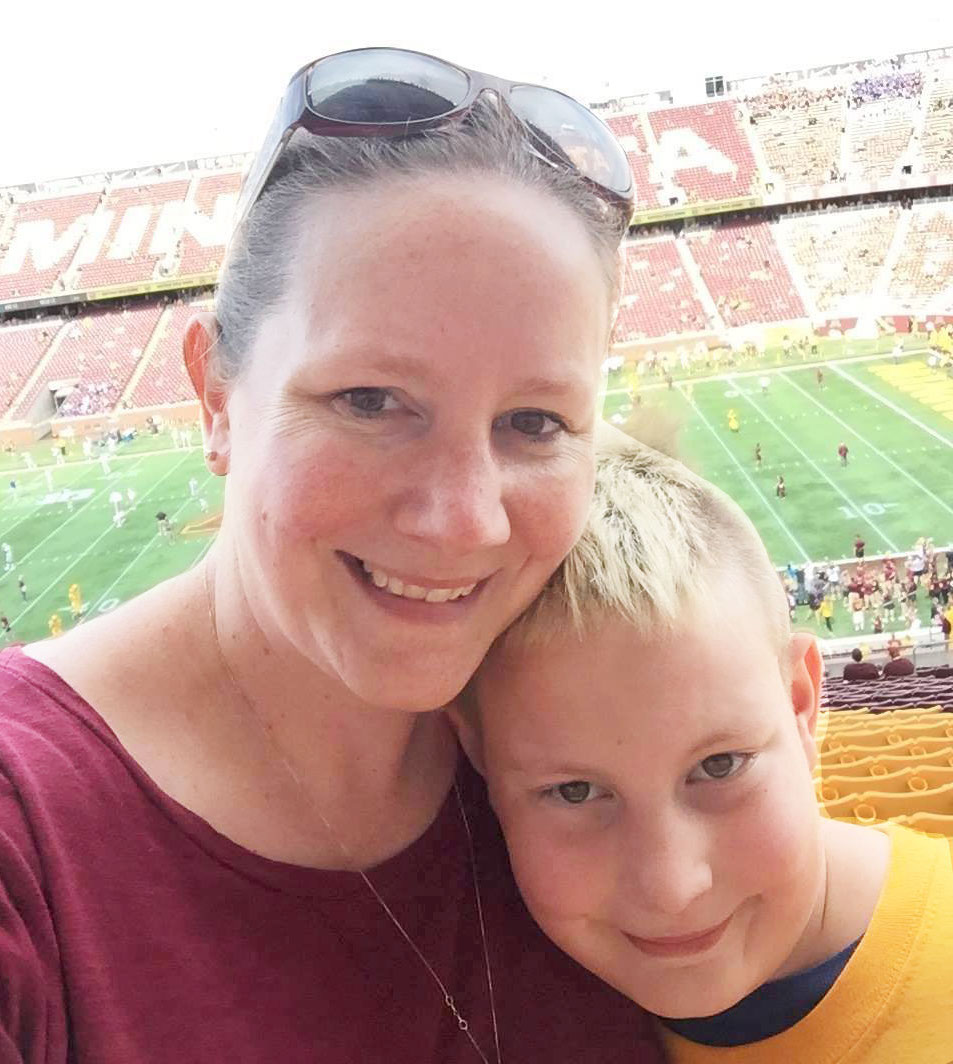
“I think that you can find amazing people everywhere. People might appear different at first, or you might have a stereotype in your mind, but then you find wonderful people. It doesn’t matter where you go. It’s reassuring sometimes.”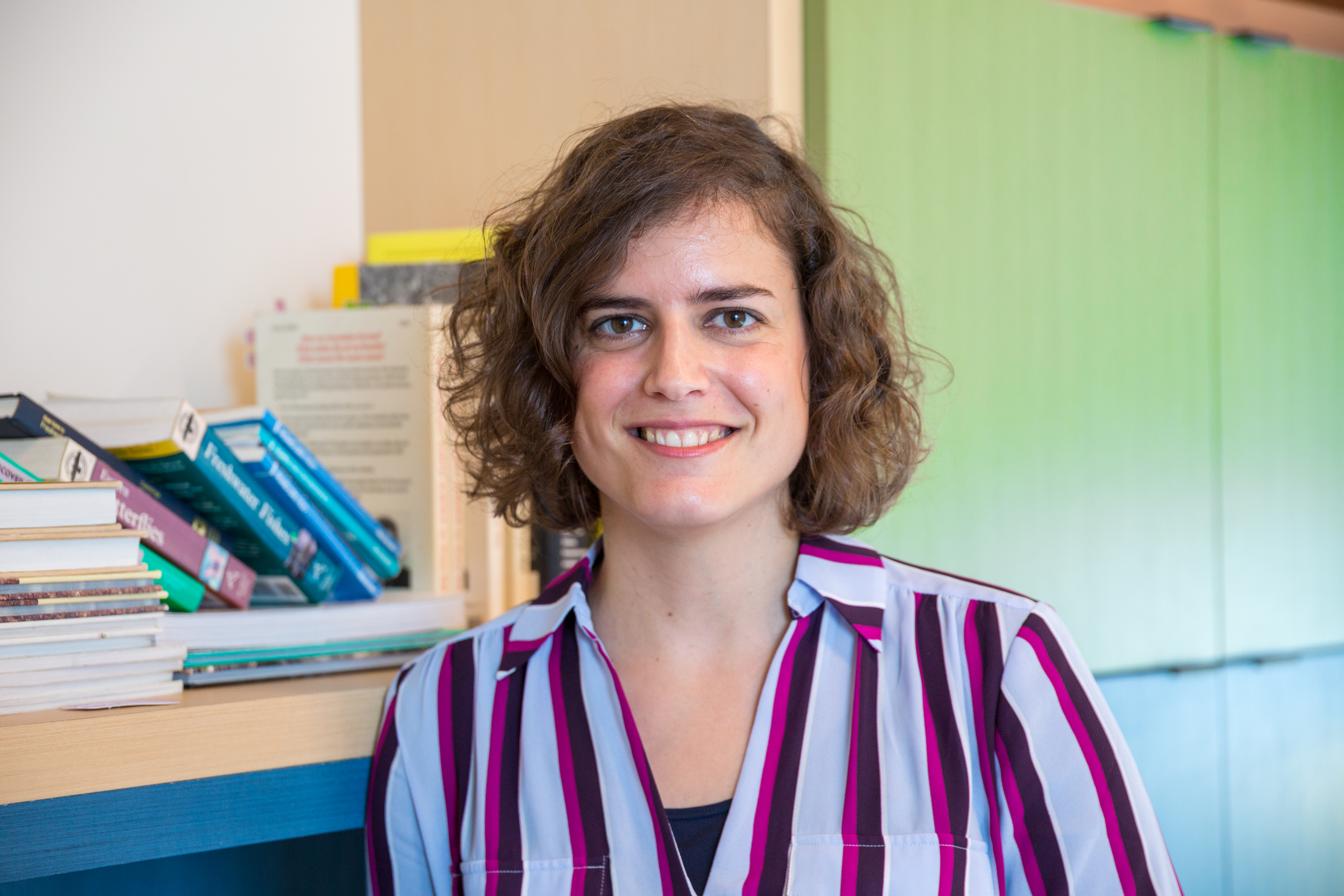
That’s a good thing for Catarina Saiote, postdoctoral research associate in the School of Medicine at the University of Minnesota. She lived in a lot of places prior to coming to the University for postdoctoral work: she was born in Lisbon, Portugal; received her PhD in Germany; moved to New York City to begin her postdoctoral work, and her most recent move brought her to Minnesota. “Why am I always moving north?” she quipped.
Catarina works in the Department of Neurosurgery. When I asked how she chose this field, she said, “I was curious about the brain early on, definitely in high school, though I probably wasn’t thinking ‘Oh, I’m going to do research about the brain!’ I find memory so interesting, you know, how it ties in to who we are. I think it’s the memory aspect that took me to brain work. The brain always seems to have a little bit of mystery around it.”
Catarina’s research originally involved using neuroimaging in surgery patients with multiple sclerosis. As different opportunities arose for postdoc assignments, she shifted her focus to epilepsy and Parkinson’s disease. Catarina uses neuroimaging methods (MRIs, EEGs, and intracranial recordings) and biomarkers to help improve surgery outcomes. She explained that, in her work, a biomarker is something that indicates a change, and can be measured before and during surgery, directly from the brain of the patient. She said the techniques are always changing because of research (“The Center for Magnetic Resonance Research here on campus is an amazing hub!”) so she’s always looking at what can be done with the new techniques and how they can be useful in the clinical setting.
I asked if, should she move again to a new location, might her focus of research change to another set of symptoms or diseases? “No, but not for lack of interest, she said, “as I’m very curious about other applications. If I moved away from epilepsy and Parkinson’s though, it would end up being a break in my career path and expertise, especially at the early stages. If you keep changing your study topic it becomes hard to build a network and track record.”
Catarina’s path to involvement in University Senate governance started when she joined the University of Minnesota Postdoctoral Association (PDA). Participating in the PDA allowed her to meet people in this new setting, widen her circle of acquaintances outside of the research lab, and advocate for changes that she and other postdocs felt could benefit their situations at the University. Through PDA she learned about University Senate governance and that there were positions on several University Senate committees for postdocs. She eventually was appointed to the Senate Committee on Academic Freedom and Tenure.
“I find it’s really interesting to be involved, to better understand what goes on around you, to have a say in it, as you represent another group.” She said usually postdoc training is meant to prepare people to become faculty, where, all of a sudden, they are expected to participate in governance and service but it wasn’t something that was required of postdocs. “So how do you build this interest and experience? Being on a committee as a postdoc is a good stepping stone. I like being involved in the University and learning how a higher education machine works.”
I asked Catarina if she had any hobbies, fully expecting her to say she simply didn’t have time for them. Instead, she told me about an article she had read recently that described how vital it is for people in academia to have hobbies. “In academics and research, the cycle for working on a project and completing it is such a long, long cycle. So it’s important to have hobbies that you can complete in a shorter amount of time, with tangible, almost immediate results.” Catarina said that hobbies are like a reset button for her. She loves to read, and to watch movies at the theater because she enjoys “being in the zone” with the rest of the audience. She recently began knitting, too. When asked what her favorite book is, Catarina said it would be so difficult to choose. She asked, “Well, can I pick The Lord of the Rings Trilogy? I know it’s three books but can it count as one? It captures so many things that I enjoy.”
Maybe one of the reasons Catarina finds amazing people everywhere is because of how she looks at the world, and the people in it. As she negotiates the interesting spaces where methodology and clinical settings overlap, she returns again and again to the idea of the mysterious brain. “The brain is always a little mysterious,” Catarina mused. “Maybe we just don’t know what the mysteries are yet.”
Missy Juliette never planned to work in finance. In fact, she swore off math in seventh grade. When she was young, she had dreams to be a teacher. But in 2012 she started working at the University as a principal account specialist in the College of Education and Human Development (CE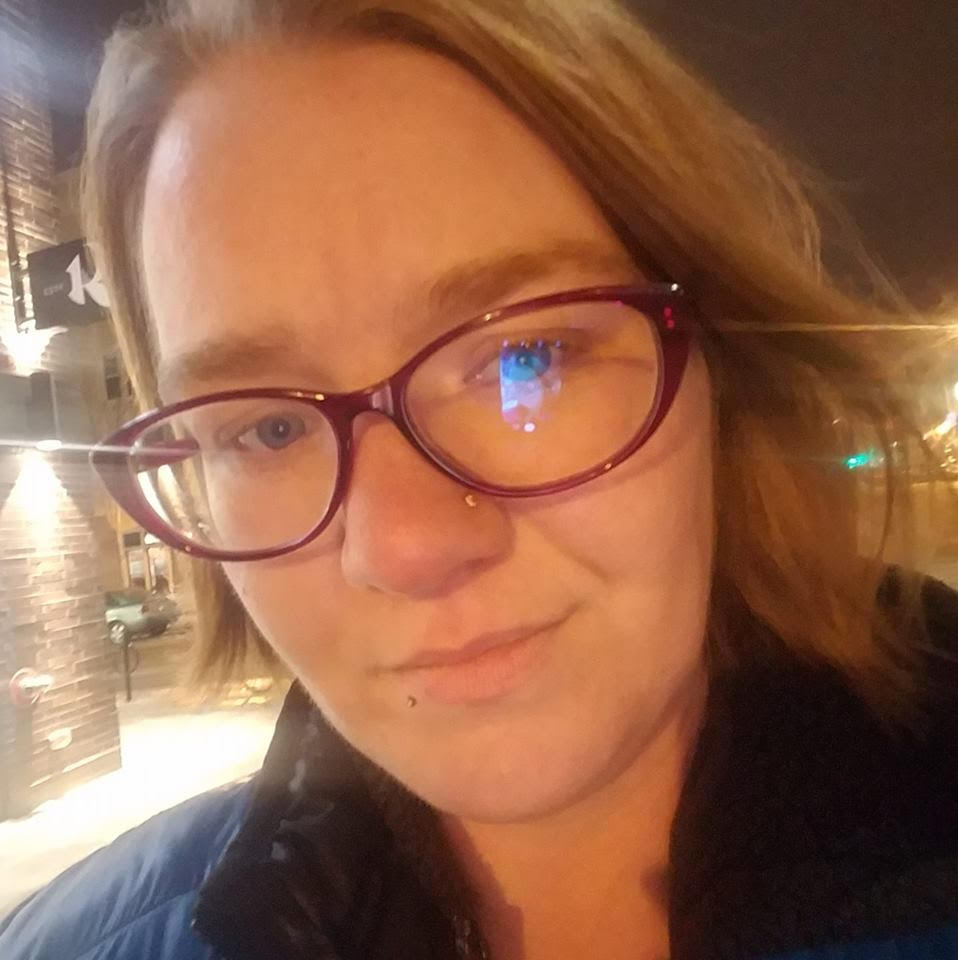
Juliette embraces challenge and hard work. She grew up in Coon Rapids, Minnesota, graduating high school with a 4.2 GPA. She was a PSEO student her junior and senior year, and she took her last final while she was in labor with her son, Alec! She finished the exam at 7:00 p.m., and he was born a few hours later, at 12:54 a.m. Funnily enough, she also had her daughter, Zoie, at 12:54 (p.m.) six years later.
When she started at the University, she was a union worker and she participated in the AFSCME rallies during the wage contract negotiations. Once, when AFSCME was working through the parental leave policy, Juliette was asked to speak with the negotiating committee. She also served on the AFSCME Executive Board. She believes that people should use their voice if they are frustrated with the process.
When Juliette moved into a civil service position in 2016, she became involved in University Senate governance right away. She serves as a civil service senator, a Civil Service Consultative Committee (CSCC) member, a co-chair of the Joint Compensation Committee, and chair of the Civil Service Communications and Outreach Subcommittee, which has made significant progress while she has been involved. In addition to publishing a consistent newsletter for civil service constituents (which gets high readership), she has ushered in more brown bag sessions to help civil service employees understand their employee benefits. She likes to keep civil service employees informed because it gets more people involved in governance. She believes there will always be things to fight for, like pay and benefits, and she appreciates the ability to collectively have a voice in those issues. Ultimately, her goal is to continue to make the University a great place to work.
Volunteering her time for meaningful causes is a significant part of Juliette’s life. In addition to working in civil service governance, she is a Wellbeing Champion, and a member of the Financial Systems User Network (FSUN) on campus. She is also starting a Toastmasters Club on the West Bank Campus. Juliette also volunteers her time outside of the University as a volunteer at White Bear Lake Emergency Food Shelf, and a member of the Board of Directors for Exodus Lending, a non-profit that helps people break the payday loan cycle. She frequently speaks in public on the organizations’ behalf, visiting with the legislature, and once giving a speech at a fundraiser to a crowd of 160 people. She helped raise $16,000 that night. When not volunteering, Juliette does crafting and card-making; she even has her own Etsy shop. How does she do it all? She loves coffee, and drinks lots of it. She says if coffee could be considered a hobby, she’d add it to her list.
Juliette has already accomplished many things in her time in civil service governance, but she is always looking ahead. She hopes to help civil service employees gain bereavement leave, and she would like to see the Regents Scholarship return to a fully covered benefit for the masters program. She believes education is the key to moving up in the world, and the Regents Scholarship is an important benefit that would afford civil service employees the opportunity to go back to school.
Her involvement in governance has taught her many things. She has gotten to know what channels to go through, and who to work with to try to make the right changes. She believes that teamwork is a key to driving change, and she has seen it work in the cross-collaborations she has been part of, like the childcare announcement last year and the Joint Compensation Commission that was founded this year between P&A and Civil Service senates. She knows that there are a lot of talented people working at the University, and those voices make the institution a really great place to work for.
Oh, and she aced her final exam before she headed to the hospital.
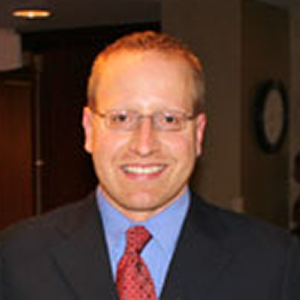
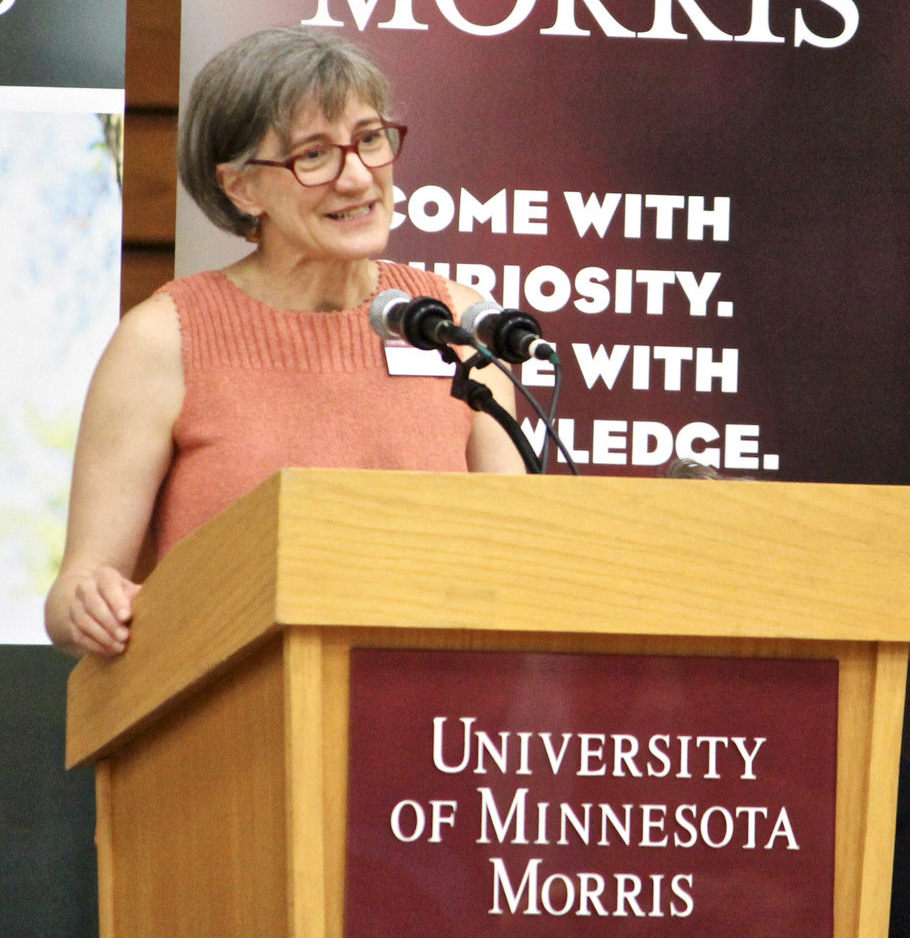
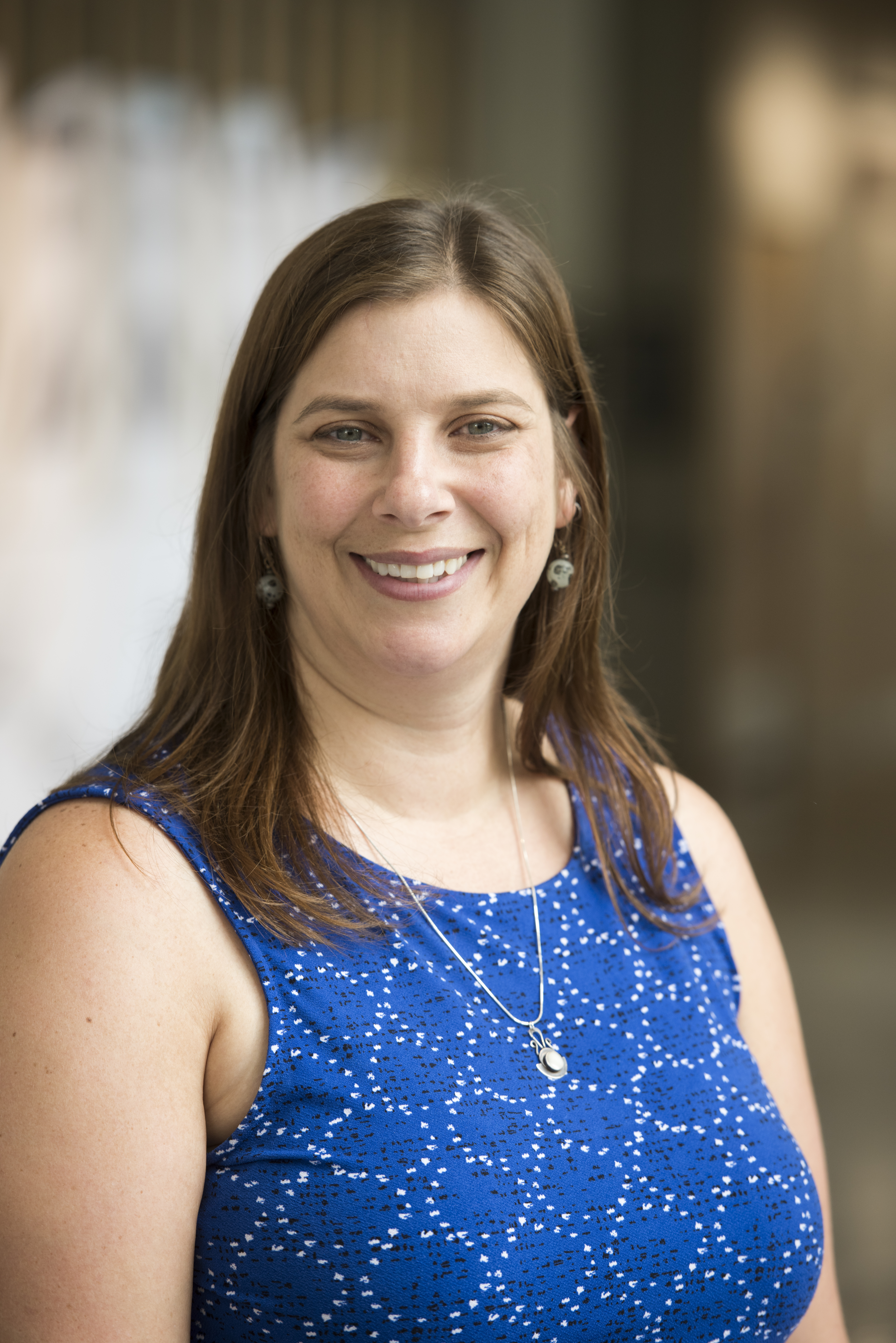
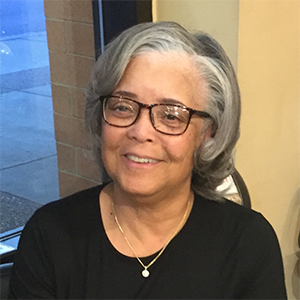
Jones Whyte, who grew up in Washington D.C., is a long-time participant in student-focused Senate committees at the University. She served as a member of the Student Behavior Committee from 2004 through 2010; the Equity, Access, and Diversity Committee from 2004 through 2008; the Provost’s Appeal Committee from 2010 through 2012; and the Senate Committee on Student Affairs from 2013 until this summer, including a stint as chair from 2013-2015. She attributes her commitment to shared governance, and specifically on these committees, to her earliest years in higher education, first as student and then as staff. Her attendance at The Defiance College in Ohio coincided with the tail of Civil Rights activism across the nation. Black students were recognizing that they had the right and the power to make demands, to be treated fairly.
Jones Whyte earned her undergraduate degree in 1969, where she was one of only twenty black students out of a population of just over 1000 undergraduates. Ten of those twenty black students at Defiance were in her class, and nine out of the ten graduated four years later. (Fun fact: She was also a cheerleader.) Jones Whyte continued her education with a master’s degree in Student Personnel from Bowling Green State University, and after being well ensconced professionally, a Ph.D. from the University of Minnesota in Organizational Leadership, Policy, and Development, tracked in Higher Education.
After earning her master’s degree, Jones Whyte returned to Defiance and stepped in to a new position – associate dean of students. For Whyte Jones it was an opportunity to help shape “how I thought the world might look.” At that time, duties were split by gender, and so she was in charge of the women. Naturally, one of her responsibilities was student discipline. At that time, there was no student code of conduct at Defiance, and so consequences for transgression were meted out in a very arbitrary fashion. How one was punished depended greatly on the individual meting it out. Jones Whyte, in collaboration with her colleagues at four other small private colleges, had a hand in drafting the first student code of conduct for Defiance and the other colleges. The code provided new structure and guidelines for student judicial processes. It also provided an opportunity for students to be represented in the process, something Jones Whyte feels very strongly about to this day; her experience has proven that it is easy for students to get lost in decision-making.
That’s why, when the call for committee membership went out at the University of Minnesota, Jones Whyte applied and was selected to serve on the Student Behavior Committee. It seemed a natural fit. Ensuing committee service was a logical progression from the Student Behavior Committee. And all of it was a nice complement to the work she was already doing in the Office for Diversity in Graduate Education. Jones Whyte’s focus has been on increased retention and inclusion of students who might otherwise fall through the cracks, or feel they were not a full member of the University community. In addition to regularly tutoring and counseling students of color and first generation students on how to navigate the higher education environment, she has played a significant role in programming that helps support these same students. Such efforts include the Multicultural Summer Research Opportunities Program (MSROP), which encourages undergraduate students to give graduate education serious consideration; the Community of Scholars Program, which aims to “create an institutional environment that supports the academic and professional success of graduate students who are underrepresented in academia;” and other supportive programming, such as fellowships for a limited number of graduate students to teach at system campuses, a setup that is mutually beneficial: it provides the campuses with much needed diversity in the classroom, while offering the graduate student the opportunity to teach. And while not at work, Jones Whyte’s work continues: she is chair of the Board of Directors for Scholars of Minnesota - Creating Opportunities for Post-secondary Education (C.O.P.E.) Project, a non-profit organization whose mission is "to assist underrepresented students in obtaining educational opportunities, financial support, and other resources they may need to reach their highest academic, professional and personal goals."
When asked why others should get involved in governance, Jones Whyte said, “The only way for the University to fairly represent its members, is for those members to participate. It is the responsibility of everyone to get involved with the structure of which they are a part.” She added that if a person is uninformed on what is happening, they won’t be able to fix the problems they see.
It’s obvious that Jones Whyte has more than fulfilled her duties in this realm. And while she insists she is not tired by the work, Jones Whyte is retiring at the end of summer 2016 to provide the space for others to have the opportunity to continue her work. She’s slowly working to digitize the files in all those boxes so the paper can be recycled, but the stories remain. Her voice and service will be greatly missed, but she encourages others to step in, to be a part of the governance process, and to let their voices be heard.
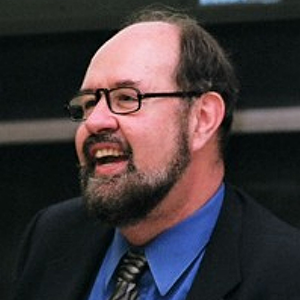
Beeman completed his undergraduate work in anthropology at Wesleyan University, and then went on to a Master’s and PhD at the University of Chicago. While doing doctoral work on discourse analysis in Iran, Beeman became interested in traditional performing arts in Asia. Eventually, this led to an unusual path in his career: although he was already tenured faculty at Brown University, he felt that he lacked an “insider’s” view of performing arts, and decided to attend the Boston Conservatory to study vocal performance. He later spent three years performing as an operatic bass in Germany.
In addition to serving as chair of the anthropology department, Professor Beeman maintains faculty affiliations with the Center for Cognitive Sciences and the program in Second Language Studies. He is a world-renowned expert on the Middle East, the Gulf Region, and Central Asia and has published dozens of works on myriad subjects, such as Iranian performance traditions, the neurobiology of opera, and language and identity politics. He served for several years as the secretary of the American Association of University Professors (AAUP), and the president of the Middle East Section of the American Anthropological Association. He also speaks over ten languages, including Hindi, Turkish, Bengali, and several European languages.
As with so many other aspects of his career, Beeman demonstrates an enthusiasm for governance that is contagious. He first got involved in governance at Brown University, where he served on the Faculty Executive Committee from 2001-2004. At the University of Minnesota, he served on the Faculty Senate from 2007 to 2013, as well as on the Senate Committee on Faculty Affairs (SCFA) from 2011 to 2013. He is currently serving his second term on the Faculty Senate, from 2014-2017. Known for being unafraid to voice a dissenting opinion, he believes in shared governance because he feels that proper consultation, cooperation and transparency are critical, as is faculty input.
When I ask him what he does in his spare time, he half-jokes that between his duties as professor and department chair and his governance participation, spare time is somewhat elusive. Nevertheless, Beeman continues his singing career, and has also written, directed and produced various plays. Recently, in conjunction with the University of Minnesota Department of Theater Arts and Dance and the Elemental Ensemble, he directed and produced a reading of It Can't Happen Here, a play written in 1936 by Sinclair Lewis and John C. Moffitt, which explores life in the U.S. under an authoritarian leader elected on a populist platform.
— Amber Bathke